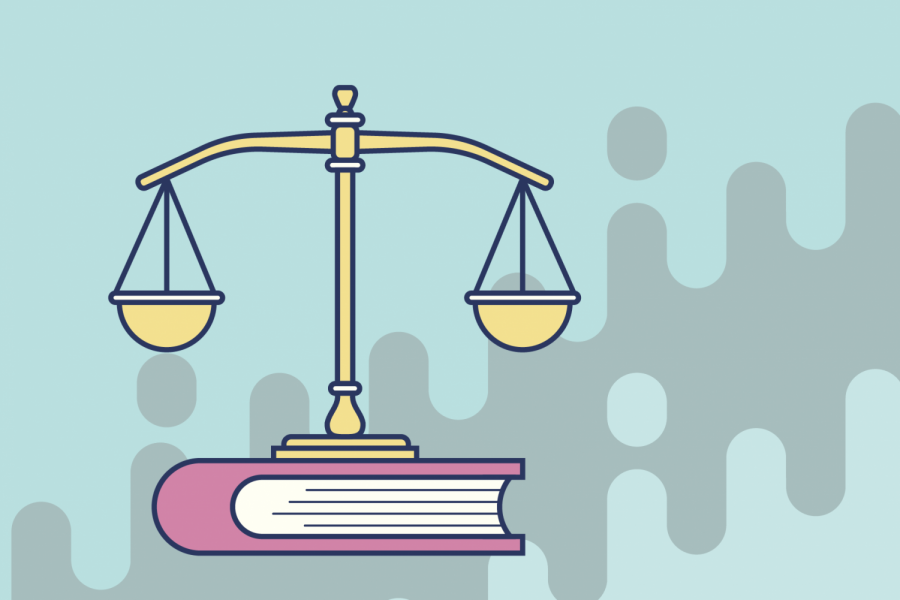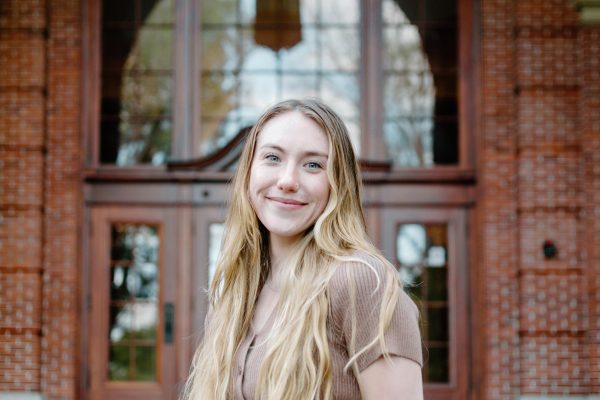On Our Minds: Students should not have to grieve perpetuation of injustice following Rittenhouse verdict
December 4, 2021
 Editor’s Note: This column does not represent the opinion of The Daily Barometer. This column reflects the personal opinions of the writer.
Editor’s Note: This column does not represent the opinion of The Daily Barometer. This column reflects the personal opinions of the writer.
After the national news of Kyle Rittenhouse’s acquittal, Oregon State University students continue to grieve the effects of a broken justice system while trying to stay resilient in their everyday lives.
On Nov. 19, Rittenhouse, the teenager who killed two and injured one with an AR-15 style weapon in Kenosha, Wis., was acquitted of all charges after his case was presented as a matter of self-defense.
On the night of Aug. 25, 2020, Rittenhouse was on the streets of Kenosha during the protests of the police shooting of Jacob Blake, a Black man. Blake was shot seven times by a Kenosha police officer on Aug. 23, and sustained serious injuries.
Rittenhouse arrived in a show of support for law enforcement, and was armed with an AR-15 rifle, a military-grade weapon, which he claimed was protection ‘just in case.’
“He brought an AR-15 rifle to the protest and then became concerned that someone was going to take the gun away from him and therefore was justified for shooting them,” said Andrew Valls, a professor of political science at Oregon State University. “It is just striking that someone bringing a rifle like that to a protest then being fearful that someone was going to take that very same rifle away from him becomes a self-defense trial.”
All of Rittenhouse’s victims were white, however, the demonstrations Rittenhouse clashed with were peaceful Black Lives Matter protests, presenting no rational need for a weapon such as what Rittenhouse carried that day.
“It’s very troubling, the fact that he brought an automatic rifle to a protest and ended up killing two people and is able to claim self-defense… and yet some people who have committed much less serious crimes are found guilty and served long sentences,” Valls said. “This fits the pattern that troubles a lot of people about the criminal justice system, and of course there’s an added element in this case, as there are in many other cases, of race.”
If there was anything to take away from the Rittenhouse verdict, it is yet another display of the two justice systems in America: a racial divide in sentencing and skepticism in both trials and arrests.
While Valls had loosely followed the specific details of the case leading up to the verdict, for many students it is simply too much to meticulously follow yet another case such as this.
“The thing about being Black and being young is you can’t really escape it anyway,” said Destiny Franklin, the vice president of the OSU NAACP branch, president of the Society of Scholarly Sistas, an OSU student organization dedicated to women’s empowerment. “It was definitely a moment of disappointment but not surprise.”
Franklin, who has fought for her community by leading marches over the summer, notes that the constant fight is draining to a person in all aspects.
“Of course I do feel sad, frustrated and hopeless, but that’s exactly why I didn’t follow it; I wasn’t about to get my hopes up,” Franklin said. “Of course they give us the “victory” of Ahmaud [Arbery] but, in my eyes, I just saw this as, ‘Well we won’t do this one, but we will give them this one,’ to try to minimize any uproar or outrage that could happen.’”
Franklin was referring to the shooting of Arbery, a Black man, who was out for a jog when he was shot and killed by three white men in February 2020. On Nov. 24, the three men were found guilty of murder and other charges by a jury.
One ‘victory’ does not make up for another loss when, as Franklin said, there should not be a cause of frustration over verdicts, nor cases of death and violence to have trials over, nor a system in place that does what it was designed to do.
Like many others, Franklin has done her best to filter through the events of the world to focus on what they can control, but they said it is still a struggle when each incident and action taken in response feels so personal.
“We feel connected to people we’ve never met before,” Franklin said. “We grieve as if they were our blood and our family. We grieve over rappers that pass away, that’s a part of our culture. We grieve over people being killed by the police and other people, out of hate. We’re just always grieving as a collective, like that is a collective traumatic experience and it’s hard to talk about these things, but I know in my position that I need to.”
Rittenhouse’s sentencing may be a very specialized case but in terms of racial disparities, the impacts and greater contexts are not specialized.
The fight is long and hard. To dismantle a system and rebuild it in a fashion that is better for all is a daunting and difficult task to tackle. The weight of it all can burden individuals to new levels, but this is where the support of the community persists over the actions of hate and harm.
“There is only so much you feel like you can do at a point, so you try to do what I do, and just not follow it, and whatever happens, happens,” Franklin said. “And if you do get a win, you are grateful, but you are still never complacent and happy with that verdict.”












































































































